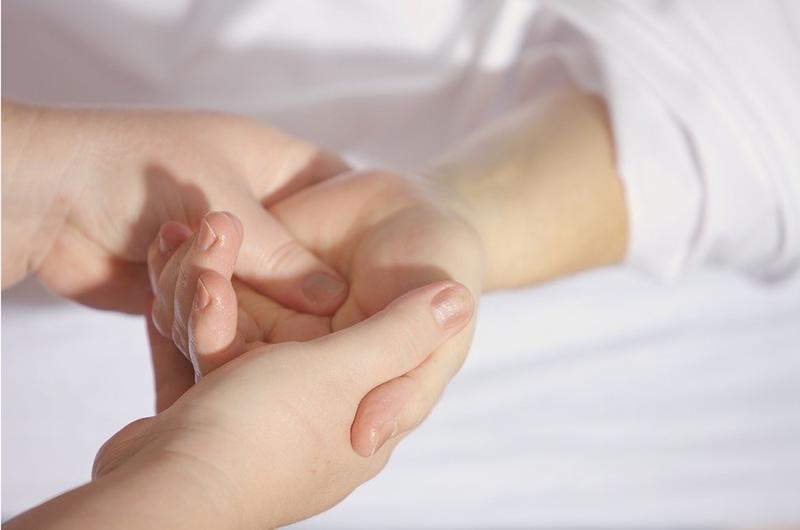Keep.waking Back Up When Tryi.comg.to Fall Asleep and.gasping.for.breathe in Panic

Odds are, everyone has experienced the numbness and pins and needles sensation that comes with having a hand or other limb fall asleep at one point or another. The general cause of the phenomenon is a disruption in the normal communication between your brain and the affected body part.
It's not uncommon to wake up with a hand that's numb or tingling, according to Healthline. But what is happening, and what are the causes?
What Happens When a Body Part Falls Asleep
Mental Floss notes that pressure squeezes blood vessels and nerve pathways. This prevents the signals to get through normally. As a result, oxygen and nutrients don't get sent through the blood vessels to the nerve. The brain and nerve pathways to misinterpret the impulses being sent, giving you feelings of numbness and tingling.
What Causes Hands and Other Parts to Fall Asleep
The underlying cause remains virtually the same in every case — pressure on the nerve. There are a variety of conditions that could be responsible for that pressure. In some cases, it's as simple as an awkward position that puts pressure on key areas. In others, it could be a sign of an underlying problem.
Carpal Tunnel Syndrome
When the median nerve in the narrow passage in your wrist is called the carpal tunnel. When that's compressed, it can cause symptoms that mimic your hand falling asleep. Typing and other repetitive motions can trigger the condition.
Neck Spondylosis
As you age, the disks in your neck that make up your spine normally wear down. For some people, it results in bulging disks or osteoarthritis. These conditions can put pressure on key nerves in the neck and spinal cord. This can lead to numbness and tingling in the hands, arms, legs, or feet.
Peripheral Neuropathy
This condition is caused by nerve damage somewhere in the nervous system outside of your spinal cord and brain. This is called your peripheral nervous system. Chemotherapy and diabetes are two possible culprits known for damaging this delicate system of nerves. Symptoms include numbness, tingling, stabbing pains, and a buzzing feeling.
Insufficient Vitamin B-12
When you're deficient in vitamin B-12, your entire nervous system can be affected. This is an essential vitamin that supports your central nervous system, brain, DNA creation, and the production of red blood cells. Symptoms include tingling and numbness, especially in the feet.
Ganglion Cysts
These benign lumps often grow along tendons and joints in the hands and wrists. If one of these non-cancerous cysts puts pressure on a nerve, it can create pain, tingling, and numbness in the hands.
Treatment for a Hand that Falls Asleep
If your hand falls asleep because of the position you're in, adjusting that position should remove the pressure. Symptoms should resolve. If symptoms continue, consider making an appointment with your physician. Your doctor will want to do a thorough exam, which may include a chest x-ray, nerve function tests, and an MRI. Your primary care physician may refer you to a neurologist, a doctor that specializes in the nervous system.
Once you figure out what's causing your hand to fall asleep, your doctor can create a plan to treat it. This may include exercises to increase strength and decrease symptoms. Other treatments and remedies include:
- Over-the-counter medications like aspirin or ibuprofen for discomfort and inflammation
- Topical treatments like lidocaine or menthol for pain relief
- Wrist guards and splints to relieve pressure on affected nerves
- Surgery to repair the damage or release trapped nerves
MORE FROM REFERENCE.COM
Keep.waking Back Up When Tryi.comg.to Fall Asleep and.gasping.for.breathe in Panic
Source: https://www.reference.com/science/make-hand-fall-asleep-ef4f25fa3057121a?utm_content=params%3Ao%3D740005%26ad%3DdirN%26qo%3DserpIndex
0 Response to "Keep.waking Back Up When Tryi.comg.to Fall Asleep and.gasping.for.breathe in Panic"
Post a Comment